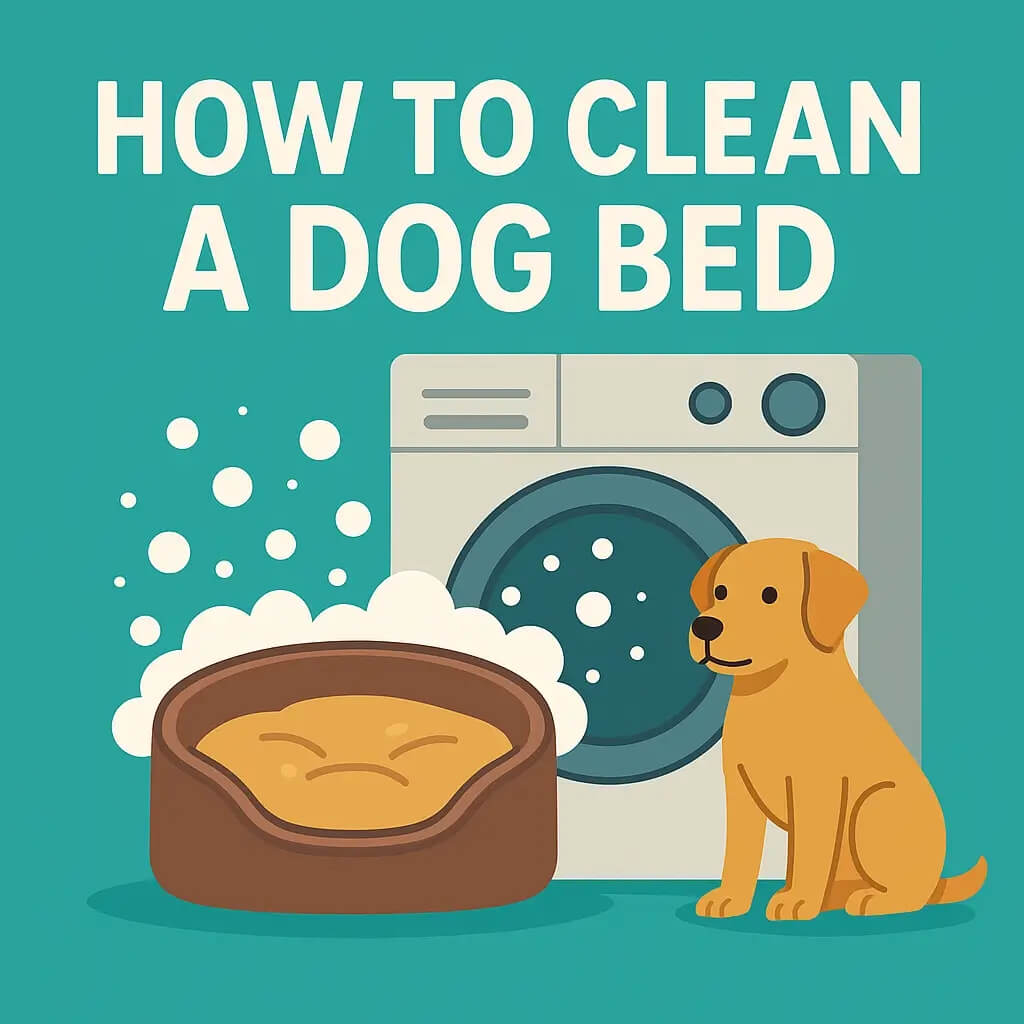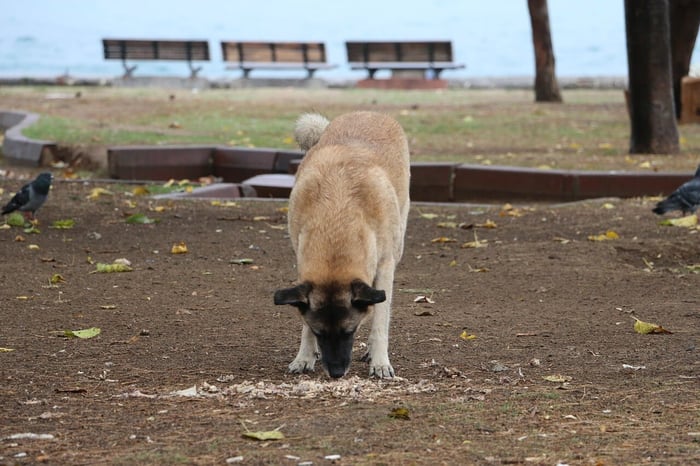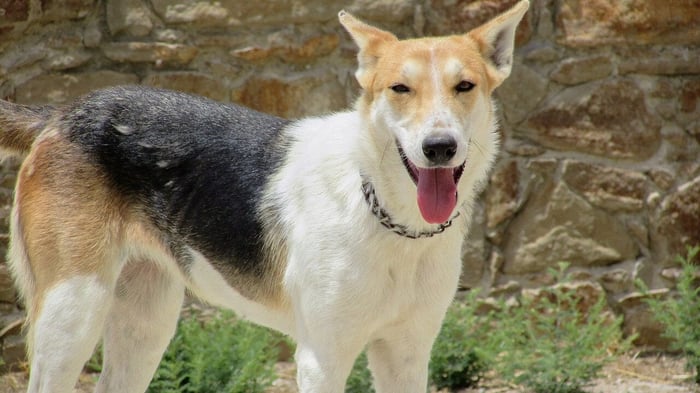Dogs have always been a source of intrigue and endless curiosity, and one product that has gained popularity in recent years is the anti anxiety dog bed. While this bed can help soothe anxious dogs, there are still some behaviors that leave us scratching our heads, such as their insatiable desire to eat rocks.
Although it may appear to be an unusual choice for a snack, it's not uncommon for dogs to chew on things that aren't edible. Let’s delve into the intriguing world of canine rock-eating behavior and explore the reasons behind this odd habit.
Natural Curiosity and Exploration
Dogs are naturally curious creatures. They learn about the world around them by exploring it with their tongues and noses. So, when they encounter a rock, their first instinct might be to investigate it.
A dog could find a rock interesting because of its smell, form, or both; in the same way, a toddler might find a new toy or reward exciting.
Imagine that your furry companion is out in the garden when they come upon a perfectly smooth, polished rock.
Their first inclination is to investigate the object by picking it up and examining it. This curiosity may sometimes lead them to nibble just to see if it's edible.
This initial interest may be a primary motivation for some dogs to eat rocks.
Dietary Deficiencies in Dogs
If you've ever wondered, "Why does my puppy chew on rocks?", you're not alone. Many dogs engage in this strange behavior, which could be linked to nutritional deficiencies in their diet. As pet parents, understanding the connection between a dog's diet and their actions, such as eating rocks, is key to ensuring their well-being.
1. Missing Nutrients in a Dog’s Diet
A dog's nutritional needs are vital for their health. When a dog isn’t receiving a complete diet rich in essential vitamins and minerals, they may start ingesting rocks or other non-food items to compensate for the missing nutrients. For example:
Mineral deficiencies like calcium or magnesium can cause your canine companion to seek out rocks that might contain these elements.
Vitamin imbalances, particularly a lack of vitamin D, can impact your dog’s health, leading to unusual behaviors like rock eating.
2. Fiber and Protein Shortages
A dog’s diet low in fiber or protein can lead to digestive discomfort or a desire to seek alternative sources of nutrition. For instance:
Fiber deficiencies may result in your dog chewing or swallowing rocks in an attempt to alleviate gastrointestinal discomfort.
Protein shortages can leave your furry friend looking for nutrients in non-food items, such as rocks.
3. A Dog’s Desire for Taste and Texture
Some rocks may have an appealing taste or texture for your dog's behavior, especially if they carry the scent of soil, plants, or other animals. This desire for sensory exploration mimics how human children or human babies explore objects by taste.
4. The Role of Underlying Medical Conditions
Occasionally, ingesting rocks can indicate a condition called pica, where dogs eat non-food items due to underlying medical conditions contributing to the behavior. This may require immediate veterinary intervention to ensure their safety.
How Pet Owners Can Help
As responsible pet parents, it’s crucial to address your dog’s dietary needs to prevent behaviors like rock eating. Here’s how:
Provide a Balanced Diet: Work with your vet to create a complete diet that meets your dog’s nutritional needs.
Introduce Mental and Physical Stimulation: Use puzzle toys, dog sports, or games to keep your canine companion engaged and alleviate boredom.
Offer Chew Toys: Give your dog safe, high-quality chew toys to satisfy their natural urge to chew and redirect their focus from non-food items.
Behavior Modification Techniques: Use positive reinforcement and specialized training to discourage destructive behaviors like munching on rocks.
When to Seek Veterinary Intervention
If your dog continues to exhibit strange behaviors such as ingesting rocks, tail chasing, or eating non-food items, it may indicate deeper behavioral issues or underlying medical conditions. Consult a veterinary behaviorist or your vet for guidance on behavior modification and treatment.
By addressing nutritional deficiencies and providing a safe and stimulating environment, you can prevent your dog from eating rocks and ensure they lead a healthy, happy life. Consistent care and proper training can make all the difference for your furry friend.
Medical Issues
Like people, dogs can have medical conditions that cause them to chew rocks. Pet owners must be aware of these potential health concerns and seek veterinary care promptly if they suspect their dog is exhibiting such behaviors.
1. Intestinal Blockages
Intestinal obstructions are a major danger of rock eating. Hard, indigestible rocks can lodge in a dog's gastrointestinal tract, causing extreme agony and perhaps death.
Gastrointestinal blockage include vomiting, diarrhea, abdominal discomfort, and appetite loss. If intestinal obstruction is suspected, seek veterinarian help immediately.
2. Gastrointestinal Problems
Different gastrointestinal disorders can cause dogs to eat rocks. Conditions like gastritis (inflammation of the stomach lining), acid reflux, or stomach ulcers can lead to discomfort and nausea.
Some dogs may ingest rocks to alleviate this discomfort, believing it could provide relief. This type of behavior is not a solution and might worsen stomach issues.
3. Dental Issues
Dental issues or canine dental damage can hurt dogs, including toothaches, gum infections, and damaged teeth. Dogs may chew rocks to relieve this pain.
Unfortunately, this can worsen their dental issues, potentially leading to infections and requiring dental procedures.
4. Pica Syndrome
Some dogs suffer from a condition known as pica, where they compulsively ingest non-food items, including rocks.
Dietary deficits or gastrointestinal diseases typically cause pica. Pet owners must work with a vet to identify and treat pica in dogs.
5. Toxic Substances
In some unfortunate cases, rocks can contain or be coated with toxic substances that can harm dogs when ingested.
Chemicals, insecticides, and toxic minerals in rocks can be poisons. Ingesting such substances can result in poisoning, leading to a range of symptoms, from gastrointestinal distress to neurological issues.
Behavioral Reasons
Dogs exhibit various behaviors influenced by their unique personalities and experiences. Some dog behavioral issues might cause dogs to eat rocks, confusing pet owners.
Understanding these behavioral factors is crucial to resolving this habit's causes.
1. Stress and Anxiety
Like people, dogs can develop obsessive behaviors like rock-eating due to anxiety and stress. Loud sounds, routine problems, and separation from humans can cause canine anxiety and stress in dogs. In response, they may engage in self-soothing behaviors like rock-chewing to cope with their emotional distress.
2. Boredom
Boredom is a typical cause of dog rock-eating behavior. Dogs are naturally active and intelligent animals that require mental and physical stimulation to thrive.
They may chew rocks for fun if left alone for long periods. This activity helps relieve boredom by providing sensory input.
3. Attention-Seeking Behavior
Some dogs learn that chewing rocks gets attention from their owners. Neglected dogs may use this habit to get attention from their owners. Even negative attention, such as scolding, can reinforce this habit.
4. Compulsive Disorders
Dogs can develop compulsive disorders, including obsessive-compulsive disorder (OCD), manifesting as repetitive and seemingly purposeless behaviors. Compulsive rock-eating may indicate mental illness. A vet or dog behaviorist can identify and treat such illnesses.
5. Exploratory Behavior
Dogs investigate with their tongues and noses. They may instinctively inspect a rock or other unknown object. The texture, aroma, and form of rocks might entice dogs to nibble or bite.
6. Coprophagia
Some dogs with the caprophagia (feces-eating behavior) may also eat rocks. Coprophagic dogs may ingest feces-contaminated rocks, complicating their diets. Coprophagia in dogs must be treated immediately to avoid health issues.
7. Lack of Proper Training
Dogs without adequate training and obedience may not comprehend correct conduct. They may experiment with rocks and other things without realizing the risks. Positive rewards and consistent training can reduce these habits.
Risks Associated with Eating Rocks
While it's important to understand why dogs eat rocks, it's equally crucial to recognize the risks associated with this behavior.
Due to the fact that rocks are both tough and unable to be digested, they pose a serious risk to a dog's health. Dogs who eat rocks might have health issues like:
- Gastrointestinal Obstruction: Larger rocks can cause blockages in the digestive tract, resulting in severe pain and potentially life-threatening situations**.**
- Choking Hazard: Small pebbles can quickly suffocate a dog.
- Internal Injuries: Sharp rocks can penetrate the stomach or intestines.
- Poisoning: Some rocks contain hazardous chemicals.
- Teeth Damage: Dogs can fracture or lose teeth from chewing hard rocks.
It's clear that eating rocks can have dire consequences for our furry friends, making it essential to address and prevent this behavior.
Prevention and Solutions
Here are some prevention tips and solutions to keep your dog safe from rock-eating behavior:
- Provide a Balanced Diet: Ensure your dog receives a balanced and nutritionally complete diet. Your veterinarian can help you pick commercial dog food or make a customized diet depending on your dog's age, breed, and activity level. A healthy diet can lessen your dog's need for rocks.
- Supervision: Supervising your dog, especially outside, is one of the best strategies to prevent rock-eating. When your dog is exploring the yard or park, keep a close eye on them to ensure they don't ingest rocks. If they're interested in pebbles, divert them with a toy or play.
- Behavioral Training: Behavioral training and dog body language training usually help remove rock-eating behavior. Teach dog training commands such as "leave it" or "drop it" so you can swiftly stop your dog from picking up a rock. Consistent training can reduce this tendency and simplify handling your dog.
- Mental Stimulation: Boredom drives rock-eating. Puzzles, interactive games, and obedience training stimulate your dog. Mental activities help keep your dog occupied and reduce destructive or unusual behavior. Additionally, oral exploration in puppies also helps. It is a normal part of their development, and offering appropriate toys can help satisfy their need to explore with their mouths and reduce the temptation to chew on rocks.
- Environmental enrichment for dogs: Environmental enrichment for dogs is essential, as it engages their senses and keeps them mentally engaged, reducing the likelihood of engaging in destructive or unusual behaviors like rock-eating.
- Safe Chew Dog Toys: Offer your dog safe, suitable chew dog toys for size and chewing tendencies. Chew toys satisfy your dog's natural drive to chew and explore, eliminating rock chewing. Opt for toys made of durable materials that won't break into small pieces that can be swallowed.
- Supplements: If your dog has specific dietary deficiencies that cannot be addressed through their regular diet, consult with your veterinarian about adding supplements to their nutrition. Overusing or misusing vitamins can be hazardous, so always see a doctor.
- Regular Veterinary Check-ups: Visit your vet often to monitor your dog's health. Your vet can quickly diagnose and treat dietary deficits and medical concerns during routine appointments.
- Rock Removal: Regularly inspect and remove rocks and small pebbles your dog may like in your outdoor space. Rock-free environments reduce rock-eating behavior in dogs.
- Address Underlying Health Issues: If you suspect your dog's rock-eating is linked to a medical problem, such as gastrointestinal discomfort or dental issues, consult your veterinarian for a thorough examination. Treating the underlying health issue can often resolve the behavior.
Comparative Analysis (Rock Eating Tendencies Between Common Breeds)
Let's examine how different dog breeds are more prone to eating rocks than others. It's essential to understand that while any dog breed can engage in this behavior, some may be more inclined due to their temperament and characteristics.
Dog Breed | Rock-Eating Tendencies |
Bulldogs may chew on rocks with strong jaws, leading to potential dental issues. | |
Known for occasional indiscriminate rock chewing due to a strong appetite and curiosity. | |
Border Collie | Prone to rock-eating when bored or under-stimulated, their high intelligence demands mental engagement. |
German Shepherd | May chew on rocks due to anxiety and stress, a breed susceptible to emotional triggers. |
FAQs
Is it harmful if my dog occasionally chews on rocks?
Even though your dog's health isn't immediately compromised when it chews on rocks occasionally, it's important to discourage the practice since it can develop into more significant health problems over time.
What should I do if my dog has ingested a rock?
Immediately seek the advice of your dog's veterinarian if you have any reason to believe that your pet has ingested a rock.
They will conduct an evaluation and provide recommendations for therapy, which in more severe situations may require surgical intervention.
How can I tell if my dog eats rocks due to dietary deficiencies?
If your dog constantly searches for and consumes rocks, you should take him to the veterinarian to rule out the possibility of any dietary deficits. If necessary, your veterinarian may suggest dietary modifications or supplements to you.
Are there safe alternatives for dogs to chew on instead of rocks?
Absolutely! Give your dog puzzle toys, bones, or dental chews that are made exclusively for dogs to chew on.
These will keep his teeth clean and healthy. These other options are risk-free and better for their teeth and gums in the long run.
Conclusion
There isn't just one solution to the question, "Why do dogs eat rocks?" Many factors, including nutritional deficiency, medical problems, and behavioral disorders, play a role.
Understanding the underlying reasons and hazards linked with this strange behavior is essential to treat it successfully.
It is our obligation as responsible pet owners to do all in our power to stop our cherished four-legged friends from engaging in this possibly hazardous behavior.
We can ensure they lead happy, healthy lives by offering them mental stimulation, appropriate training, and safe chew alternatives.












